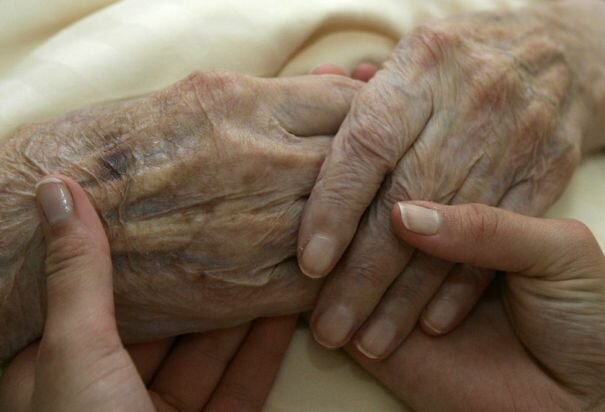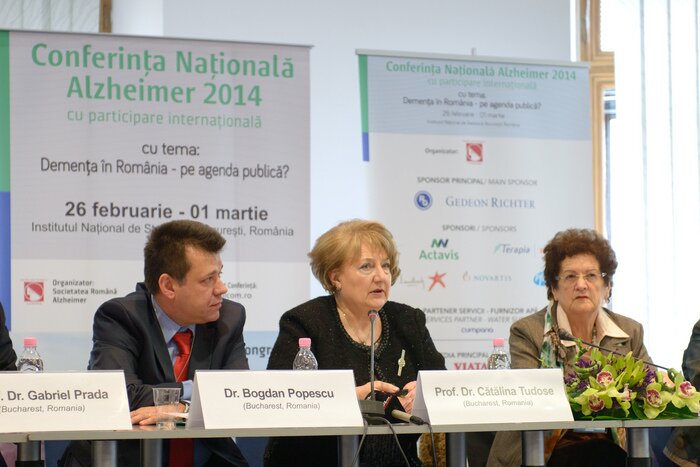Dementia must be recognized as a public health issue in Romania
Dementia must be recognized as a public health issue in Romania
A person is diagnosed with Alzheimer’s disease every 4 seconds all across the world. In Romania, of the estimated 270,000 suffering from the disease, only 35,000 have been diagnosed, mostly in the advanced stage. Even though there is interest on the part of experts in early diagnosis, the organization of the medical system does not favor it, according to Professor Catalina Tudose, MD, head of the Romanian Alzheimer Association. Professor Catalina Tudose: “The first step would be to set up an inter-ministerial department with representatives of the 5 or 6 ministries involved in any form of human and financial resource planning needed to create an assistance system.
This department would also need workgroups to evaluate the situation as it stands. If we only think of the number of physicians who have graduated and don’t have a job, specialists, neurologists, psychiatrists, geriatrists, maybe we could make a starting solution for creating diagnosis centers, which would not take very much. At the same time, we should have a National Dementia Registry. Also we need better and new legislation to defend the rights of people with dementia. This is not something that happens in a month, or even a year.
We intend to have this done by 2020. However, a lot of things can be done in the meantime, important things, such as stopping the exodus of physicians. It seems to me this is essential in applying such a plan for medical assistance across a country.” Dr. Bogdan Popescu, representing the Romanian Neurology Society, explains what happens with a patient with dementia and what their needs are: “We estimate that a large part of them are without a diagnosis. To diagnose them, you need physicians, but unfortunately there are not many doctors who can diagnose dementia.
Then you need the technological means, because any dementia diagnosis means having an investigation, which costs money. Then comes the care part. In an initial stage, the dementia is mild, and generally care means medication, which is fortunately covered by national health care. After that initial stage, medication is no longer sufficient. There comes a stage when patients can no longer take care of themselves, but they are not in such a bad condition to be hospitalized. In many European countries they have the idea of caretaker companion. Then comes the final stage, when the patient with dementia is so helpless that institutionalization is needed. Therefore you need a certain number of hospital beds for these terminal patients, and here we are talking about institutions able to provide long term in-patient care, with qualified medical personnel.”
Experts in neuro-degenerative diseases point out in alarm at the rate of dementia afflicting people by and until 2050. In world studies, past 65 years of age, about 10% of people have some form of dementia, and past 85, over 40% are likely to develop it. Dr. Gabriel Preda, who teaches medicine, head of the Romanian Geriatrics and Gerontology Society, told us about the breadth of the phenomenon against the backdrop of global aging: Gabriel Preda: “In Romania in 1990, about 10% of people, that is one in ten, were over 65. In 2008, it was estimated that the figure would reach 15%, therefore one out of seven, and in 2011 the figure was 16.1% people over 65. This is a rather sudden rise in the number of people with a predisposition towards developing the disease. In Romania, as in most countries, the percentage of people with extreme ages is on a rapid rise. Which is why we need a coherent, progressive-type care system. That means the system should be adapted to the various stages of evolution of the disease, from mild to severe forms.” Dementia is on the European agenda. There are some directives that urge member states to bear in mind the issue of caring for people with neuro-degenerative disease. In Europe, around 13 million people suffer from Alzheimer’s disease, and dementia is the seventh cause of death in high-income countries, and is the cause of death for half of patients with neurological and psychiatric conditions
original source: http://www.balkans.com/open-news.php?uniquenumber=190770
Pin It


